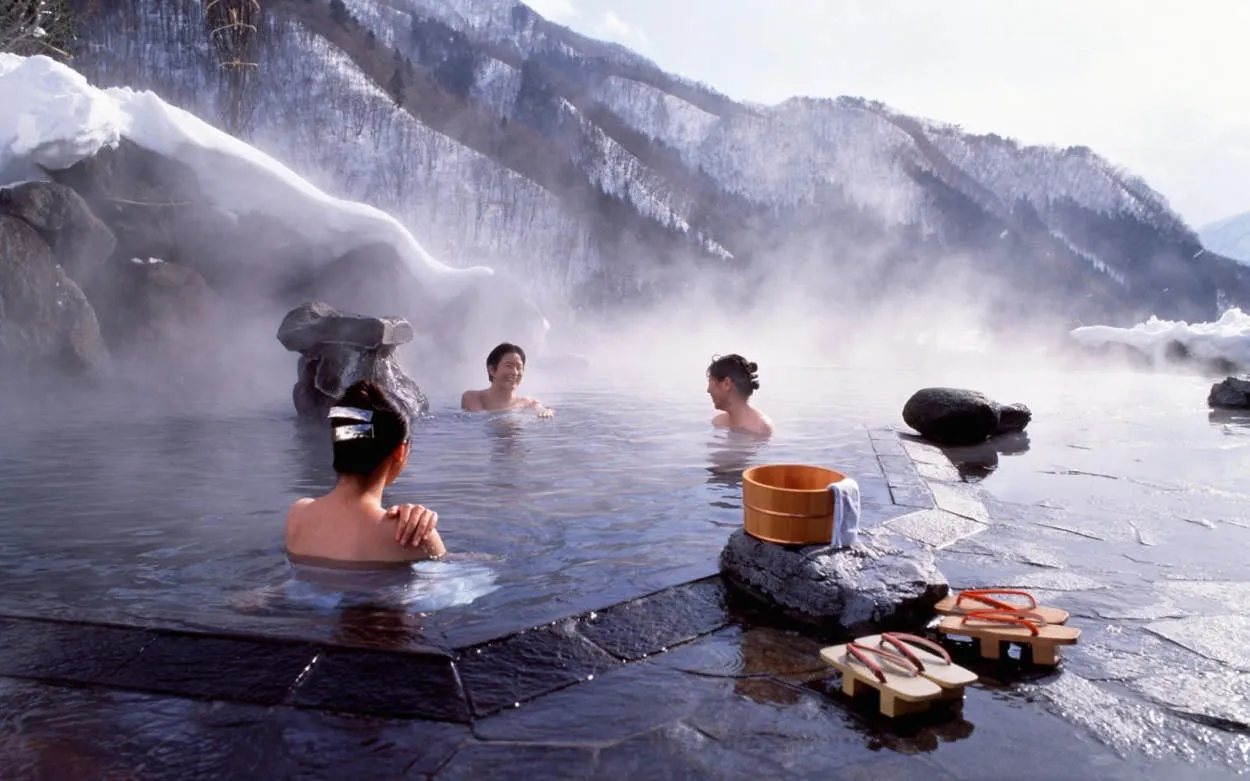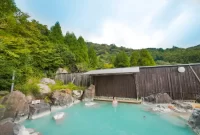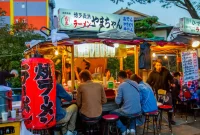Immerse yourself in the enchanting world of Japanese onsen culture and discover a unique experience like no other. From soaking in soothing mineral-rich hot springs to embracing traditional etiquette, this article explores the essence of onsen culture, awakening your senses to a rejuvenating journey of relaxation and self-discovery.
Relaxing in Natural Hot Springs
When it comes to experiencing the beauty and tranquility of Japanese culture, a visit to the country’s Onsen, or natural hot springs, is an absolute must. These hot springs are not only known for their soothing and healing properties, but they also offer a unique glimpse into the traditional Japanese way of life.
Japan is blessed with numerous natural hot springs, which are scattered throughout the country. Many of these onsen are nestled in picturesque locations such as mountains, forests, or along the coast, providing visitors with breathtaking views while they soak in the warm mineral-rich waters.
Stepping into an onsen is like entering a peaceful oasis. The calming atmosphere, combined with the therapeutic effects of the hot mineral waters, is a perfect recipe for relaxation. Soaking in the onsen not only helps to relieve muscle tension and improve blood circulation but also promotes a sense of well-being and rejuvenation.
Furthermore, onsen culture is deeply rooted in Japanese tradition. It is common for visitors to follow a specific bathing etiquette, which includes cleansing oneself thoroughly before entering the hot springs, maintaining silence to preserve the peaceful ambiance, and respecting the communal space by not wearing swimwear.
Another fascinating aspect of onsen culture is the variety of baths available. In addition to the standard hot springs, some establishments offer unique experiences such as outdoor baths with stunning natural landscapes, rotenburo; mixed-gender baths, konyoku; and even special baths with certain health benefits like mineral-rich waters or medicinal properties.
Whether you choose to visit an onsen in a luxury resort or a small rural town, the experience is sure to leave you feeling relaxed and rejuvenated. So, if you’re planning a trip to Japan, don’t miss the opportunity to immerse yourself in the rich and soothing onsen culture.
Understanding Onsen Etiquette and Traditions
When it comes to experiencing Japanese onsen culture, understanding the etiquette and traditions is crucial. Onsen, which refers to natural hot springs, is a significant part of Japanese culture and is known for its relaxing and therapeutic qualities.
Before entering an onsen, it is important to thoroughly clean your body in the designated washing area. This helps to maintain the cleanliness of the hot springs and respect the other bathers. Additionally, it is customary to remove all clothing before entering the baths, so be prepared for this communal bathing experience.
Respecting others’ privacy and maintaining a quiet atmosphere are essential etiquettes in onsens. Avoid loud conversations or using mobile phones while in the hot springs area. Always be mindful of others who are seeking relaxation and tranquility.
Furthermore, tattoos are still associated with the yakuza, or Japanese mafia, and many traditional onsens prohibit entry to tattooed individuals. However, some places now provide private bathing options to accommodate tattooed visitors or tourists who wish to preserve their privacy.
It is also common to find gender-separated onsen facilities in Japan. So, make sure to confirm the designated bathing areas before entering. Additionally, be aware of any specific rules regarding towels, as some places prohibit them from being brought into the water.
Understanding and respecting these onsen etiquettes and traditions will ensure a pleasant experience and contribute to preserving the rich cultural heritage of Japan’s onsen culture.
Indulging in Japanese Wellness and Hospitality
Japan offers a unique cultural experience with its traditional hot spring baths known as onsen. These natural hot springs not only provide relaxation but are also believed to have therapeutic benefits.
Immersing oneself in the onsen culture allows visitors to experience the Japanese art of hospitality, known as omotenashi. From the moment you enter the serene and tranquil surroundings of an onsen resort, you are greeted with warm and courteous service.
The onsen experience goes beyond bathing. It encourages guests to slow down, unwind, and embrace the peaceful atmosphere. Many onsen resorts offer additional facilities such as picturesque gardens, tea houses, and meditation spaces.
Japanese onsen often feature natural elements, such as rock formations and bamboo, creating a harmonious connection with nature. The mineral-rich waters are believed to cleanse the body and promote overall well-being.
Participating in the customary rituals associated with onsen bathing is also a memorable aspect. For example, guests must thoroughly cleanse themselves before entering the bath, as a sign of respect to others.
During your visit, you can also enjoy regional cuisine, which varies depending on the location of the onsen. Each dish offers a tantalizing blend of flavors and is usually made with fresh, seasonal ingredients.
Indulging in Japanese wellness and hospitality through the onsen experience provides a rejuvenating getaway from the demands of everyday life. It offers a chance to immerse oneself in the rich traditions and unwind in a serene environment.
Conclusion
Experiencing the Japanese Onsen Culture is a truly unique and rejuvenating adventure that offers a glimpse into Japan’s rich traditions. From the serene and picturesque hot spring settings to the age-old bathing rituals, onsen provides a tranquil escape from the hustle and bustle of modern life. Embracing the onsen culture allows visitors to immerse themselves in Japanese customs and gain a deeper appreciation for the country’s history and natural beauty.




